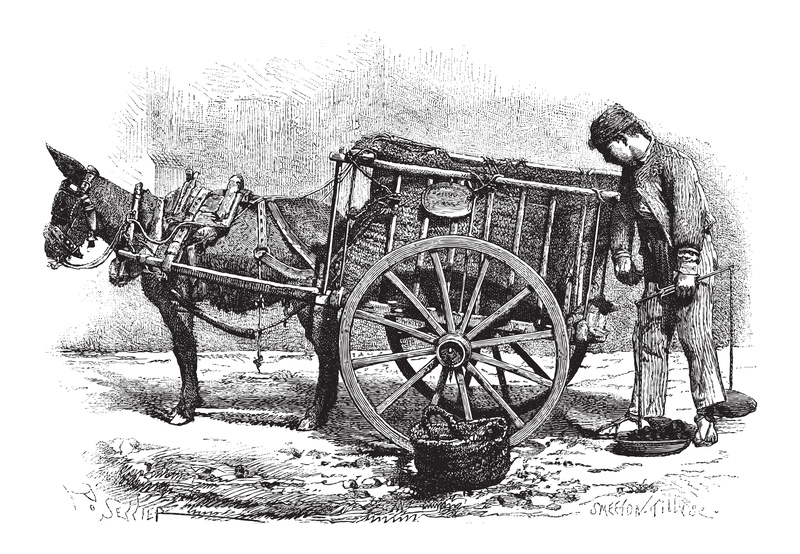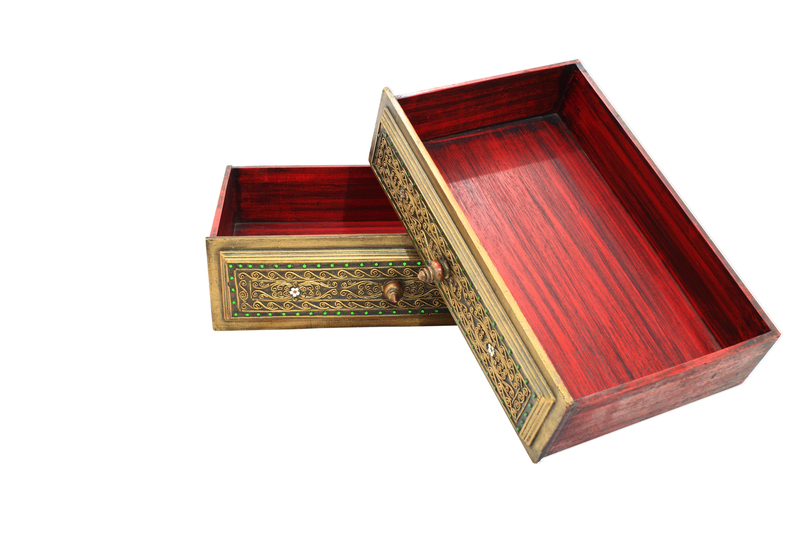Optimized Living through Clutter Removal and Hoarder Clean Up
Unlock the benefits of a healthier, happier lifestyle by embracing optimized living through clutter removal and professional hoarder clean up. In today's fast-paced world, it is easy to accumulate belongings, leading to cluttered spaces and even hoarding tendencies. This comprehensive guide explores the positive impact of decluttering and specialized clean up services on your physical environment and mental well-being. Learn how to rejuvenate your space and transform your life through smart, sustainable cleaning solutions.

Why Clutter Removal is Essential for Optimized Living
A cluttered environment doesn't just make your home or office look untidy--it can significantly impact your mood, productivity, and health. By engaging in consistent clutter removal, you pave the way for an optimized living experience that fosters tranquility, creativity, and physical wellness.
Physical Benefits of Decluttering
- Improved air quality: Removing unnecessary items eliminates dust and allergens, contributing to a healthier indoor environment.
- Enhanced safety: Clear pathways reduce the chances of trips and falls, especially crucial for households with children or seniors.
- Maximized space: Organizing and removing excess items creates more usable areas for daily activities.
- Facilitates cleaning: Fewer objects mean surfaces are easier to dust and floors are simpler to vacuum or mop.
Mental and Emotional Advantages
- Reduces stress: A tidy environment promotes calmness, reducing feelings of overwhelm and anxiety.
- Boosts focus and productivity: Research shows that organized spaces help improve concentration and task efficiency.
- Elevates mood: A sense of order can spark joy and increase satisfaction with your home and life.
- Supports better decision-making: Regular decluttering helps you evaluate what truly adds value to your surroundings.
Clutter removal for optimized living is more than aesthetics; it's a proactive step towards holistic health.
Understanding Hoarder Clean Up: Special Challenges and Solutions
While general clutter can accumulate in any household, hoarding disorder is a complex psychological condition that leads to excessive collection and retention of items, often to the point that living spaces become unusable or unsafe. Addressing hoarder clean up requires specialized expertise, sensitivity, and a structured approach.
The Distinction between Clutter and Hoarding
Clutter is a manageable level of disorder that occurs when belongings accumulate, but still allow for reasonable use of each space. Hoarding goes beyond normal accumulation and severely restricts movement, hygiene, and even safety in a home. Recognizing the difference helps determine the best intervention strategy.
Key Challenges in Hoarder Clean Up
- Emotional Attachment: Many hoarders have deep psychological ties to their possessions, making disposal emotionally challenging.
- Health Risks: Accumulated clutter can harbor mold, pests, and biohazards, posing health threats to occupants and cleaners.
- Structural Damage: Overloaded floors and blocked exits compromise the safety and integrity of the property.
- Social Isolation: Hoarding often leads to embarrassment and withdrawal, further complicating the clean up process.
Professional Hoarder Clean Up Services: Why They Matter
Professional hoarder clean up services employ experienced teams who use a compassionate, systematic approach. They address both safety and psychological barriers, ensuring that decluttering is done respectfully and thoroughly. These experts can also identify salvageable items, facilitate proper disposal of hazardous materials, and restore living spaces to usable conditions.
The Step-by-Step Guide to Clutter Removal and Hoarder Clean Up
Whether you're tackling minor clutter or require full-scale hoarder cleaning and organization, a structured process ensures lasting results. The following steps can help anyone regain control of their living spaces, while those managing severe hoarding should seek professional assistance.
1. Assessment and Goal Setting
Begin by conducting a thorough assessment. Identify which areas are cluttered and to what extent. Set realistic goals for each room or zone, prioritizing critical spaces such as entryways, kitchens, and bathrooms. For hoarder clean up projects, this phase may involve consultation with therapists or social workers.
2. Categorization
Sort items into categories: Keep, Donate, Sell, Recycle, or Discard. Use storage solutions to streamline items you retain. For those with hoarding tendencies, consider involving supportive friends, family, or mental health professionals during this process.
3. Decluttering and Removal
- Start with a small, manageable area to maintain motivation.
- Work systematically, one room or section at a time.
- Dispose of unwanted items responsibly to minimize environmental impact.
- If encountering hazardous or contaminated materials, use proper safety gear or hire qualified cleaners.
4. Deep Cleaning
Once clutter is removed, deep clean the cleared areas. This includes dusting, vacuuming, mopping, and disinfecting surfaces. This step helps to eliminate allergens, mold, and odors, greatly improving indoor air quality.
5. Organization and Maintenance
- Invest in storage systems like shelves, bins, and drawer organizers.
- Label storage solutions for easy access and effective maintenance.
- Establish daily or weekly routines to keep clutter at bay.
- Regularly review and purge items to prevent recurrence of clutter.
Mental Health and Wellness: The Psychological Benefits of Clutter Removal
Optimizing your living environment through clutter and hoarder clean up has far-reaching effects on mental health. The act of reclaiming order in your surroundings can boost self-esteem and decrease anxiety. Those struggling with hoarding disorder often experience profound relief and increased social engagement following a successful clean up.
Boosting Confidence and Motivation
Every step towards a cleaner space reinforces your ability to take charge of your environment. Completing small decluttering tasks builds confidence, encouraging continued progress and personal growth.
Breaking the Cycle of Procrastination
Clutter often breeds procrastination and vice versa. By tackling mess and disorder head-on, you break this cycle and experience greater motivation in all areas of life.
Practical Tips for Sustainable Clutter Prevention
Maintaining an organized and optimized home is an ongoing process. Use these practical strategies to prevent clutter from returning:
- Adopt the "one in, one out" rule: When buying something new, remove an old or unused item.
- Schedule regular mini-declutter sessions: Set aside 10-15 minutes each week to tidy up and reassess belongings.
- Embrace minimalism: Focus on quality over quantity; invest in multipurpose, long-lasting items.
- Promote shared responsibility: Involve all household members in keeping common areas organized and clean.
- Use digital solutions: Store paperwork and photos electronically to reduce physical clutter.
When and Why to Hire Professional Hoarder Clean Up Specialists
While DIY decluttering is suitable for most households, professional hoarder clean up services are essential in extreme cases.
- Severe accumulation: When clutter or hoarding makes areas of the home inaccessible or hazardous.
- Health and biohazard risks: Presence of mold, pests, animal waste, or other dangerous materials.
- Emotional overwhelm: The psychological distress of removing items is too great to manage alone.
- Legal or municipal requirements: Property code violations or eviction threats due to hoarding.
Expert cleaners utilize protective equipment, industrial cleaning supplies, and efficient organization systems to ensure both the home and its occupants are cared for.

Transform Your Space, Transform Your Life
Optimized living through clutter removal and hoarder clean up is a journey toward better health, peace of mind, and more fulfilling daily routines. By addressing physical disarray and underlying emotional factors, you unlock a lifestyle of clarity and purpose.
Key Takeaways for Readers
- Decluttering improves both physical and mental health.
- Hoarding requires specialized, compassionate intervention.
- Maintenance routines and mindset shifts are critical for long-term success.
- Professional services provide essential support in severe or complex cases.
Conclusion: Enjoy the Rewards of an Organized, Clutter-Free Life
Whether you're managing a minor mess or seeking a complete hoarder clean up transformation, taking the steps outlined in this guide sets the foundation for optimal living conditions. Clean, orderly spaces foster happiness, productivity, and well-being. Start today, and experience the profound impact of a refreshed, revitalized home.
In summary, clutter removal and hoarder clean up are powerful tools for achieving optimized living. Commit to regular upkeep, embrace simplicity, and don't hesitate to seek help when needed. Enjoy the freedom and serenity that come with an organized life!
Frequently Asked Questions (FAQs)
- What is the main difference between clutter and hoarding?
Clutter is a manageable build-up of items, while hoarding is a persistent inability to discard possessions, severely limiting space and function. - How often should I declutter my home?
Incorporate small decluttering sessions weekly, with more comprehensive reviews at least once a season. - What are the first steps in a hoarder clean up?
Assessment, emotional support, and a detailed plan are crucial before beginning cleanup. Consult professionals for safety and psychological guidance. - Can decluttering really improve my mood?
Yes, studies show that organized environments reduce stress and boost overall mood and mental clarity.
Ready to begin your journey to optimized living? Start your clutter removal or seek hoarder clean up support today and enjoy the benefits of a safe, serene, and invigorating space.